
Inflammation and Regeneration
Scope & Guideline
Empowering discoveries in inflammation and regenerative therapies.
Introduction
Aims and Scopes
- Neuro-immune interactions:
Research focusing on the interplay between the nervous and immune systems, particularly how neuro-immune crosstalk can influence regeneration and inflammation in conditions such as neurodegenerative diseases. - Stem cell and regenerative therapies:
Emphasis on the use of stem cells, including mesenchymal stem cells and induced pluripotent stem cells (iPSCs), for therapeutic applications in regeneration and treatment of inflammatory diseases. - Extracellular vesicles and their roles:
Investigation into the role of extracellular vesicles in mediating cellular communication, inflammation, and regeneration, highlighting their potential as biomarkers and therapeutic agents. - Molecular and cellular mechanisms of inflammation:
In-depth studies on the molecular signaling pathways and cellular interactions that govern inflammatory responses and tissue regeneration across different organ systems. - Clinical applications and translational research:
Focus on translating basic research findings into clinical applications, particularly in the context of autoimmune diseases, chronic inflammation, and regenerative medicine.
Trending and Emerging
- Precision medicine and personalized therapies:
Growing focus on tailoring treatments based on individual patient profiles, particularly in autoimmune and inflammatory diseases, indicating a shift towards more personalized approaches in clinical practice. - Interactions between gut microbiota and inflammation:
Emerging interest in how gut microbiota influence inflammatory processes and regeneration, reflecting the recognition of the gut-skin and gut-liver axes and their implications for health. - Innovations in gene editing and regenerative immunotherapy:
Increased exploration of gene editing technologies, such as CRISPR, for enhancing immune responses and regenerative capabilities, indicating a rising trend in utilizing genetic tools for therapeutic purposes. - Role of epigenetics in inflammation and regeneration:
Heightened attention to how epigenetic modifications influence inflammation and regenerative processes, suggesting a deeper understanding of the molecular underpinnings of these phenomena. - Multi-omics approaches:
Integration of various omics technologies to provide comprehensive insights into the mechanisms of inflammation and regeneration, showcasing the trend towards holistic, systems-level analyses.
Declining or Waning
- Traditional inflammatory disease models:
There appears to be a reduced emphasis on classical models of inflammation, as newer methodologies and technologies, such as single-cell analyses and advanced imaging techniques, gain traction. - Generalized anti-inflammatory therapies:
Research focused on broad-spectrum anti-inflammatory treatments is less prominent, possibly due to a shift towards more targeted therapies that consider specific pathways and mechanisms. - Static studies of inflammation:
Studies that do not incorporate dynamic or real-time analyses of inflammation and regeneration are becoming less common, as the field increasingly values insights from in vivo imaging and temporal assessments.
Similar Journals
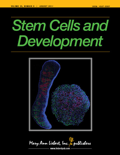
STEM CELLS AND DEVELOPMENT
Elevating Knowledge in Stem Cell Biology and DevelopmentSTEM CELLS AND DEVELOPMENT, published by Mary Ann Liebert, Inc., is a leading peer-reviewed journal dedicated to the rapidly advancing fields of stem cell biology and developmental science. With an ISSN of 1547-3287 and an E-ISSN of 1557-8534, the journal encompasses a broad range of topics central to understanding stem cells' roles in development and regeneration processes. It holds a prestigious standing within its category quartiles, ranking Q3 in Cell Biology, Q2 in Developmental Biology, and Q2 in Hematology for 2023. With its convergence from 2004 to 2024, STEM CELLS AND DEVELOPMENT fosters an innovative platform for researchers, professionals, and students to disseminate groundbreaking research, share insights, and explore novel therapeutic approaches. Open access options enhance the journal's visibility and accessibility, promoting a collaborative exchange of information among the scientific community. Positioned at the forefront of stem cell research and its applications, this journal is vital for anyone seeking to stay informed about the latest advancements and trends within these critical areas of study.

npj Regenerative Medicine
Shaping the Future of Therapeutic Advancements.npj Regenerative Medicine, published by NATURE PORTFOLIO, is at the forefront of research and innovation in the field of regenerative medicine, fostering a deep understanding of cellular and molecular processes that can be leveraged for therapeutic advancements. Launched as an Open Access journal since 2016, it ensures wide dissemination of knowledge, allowing researchers, professionals, and students to access high-quality articles without barriers. With an impressive impact, it holds Q1 ratings across multiple categories including Biomedical Engineering, Cell Biology, Developmental Biology, and Medicine (miscellaneous) as of 2023, indicating its critical role in shaping contemporary scientific discourse. The journal ranks notably within the top 10% in multiple Scopus categories, indicating its commitment to publishing pioneering research that addresses pressing challenges in regenerative therapies. Addressing the dynamic convergence of disciplines, npj Regenerative Medicine is poised to not only impact academic thought but also translate into clinical applications, making it a pivotal resource for those invested in the future of medicine.
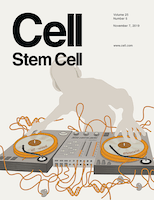
Cell Stem Cell
Advancing the Frontiers of Stem Cell ResearchCell Stem Cell, published by CELL PRESS, is a premier journal at the forefront of cellular biology, genetics, and molecular medicine. With an esteemed impact factor and recognized as a Q1 journal in multiple categories including Cell Biology, Genetics, and Molecular Medicine, it offers researchers, professionals, and students rigorous, peer-reviewed articles that shape the future of stem cell research and regenerative medicine. Located in Cambridge, MA, this journal has become an invaluable resource since its inception in 2007 and is committed to disseminating groundbreaking findings that drive innovation and understanding in these critical fields. By consistently ranking within the top percentile of its categories in Scopus, Cell Stem Cell remains an essential platform for scholarly communication, fostering collaboration among leading scientists worldwide. Although the journal does not currently offer open access options, its comprehensive insights are pivotal for anyone engaged in the study of stem cells and their applications.

Stem Cells International
Fostering Collaboration in Cutting-edge Stem Cell ResearchStem Cells International is a premier open access journal published by HINDAWI LTD, focusing on the rapidly evolving field of stem cell research. With an ISSN of 1687-966X and E-ISSN 1687-9678, this journal has been a vital resource since its inception in 2010, showcasing innovative studies and breakthroughs up to 2024. Positioned in Q3 in Cell Biology and Q2 in Molecular Biology for 2023, as well as well-ranked in the Scopus database, the journal serves as an essential platform for researchers, professionals, and students dedicated to exploring the implications of stem cell technology in regenerative medicine and biological research. The open access model ensures wide accessibility, fostering collaboration and knowledge-sharing across the scientific community, making it a cornerstone in advancing the understanding and application of stem cell science.
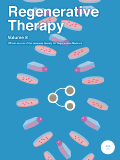
Regenerative Therapy
Elevating the discourse on regenerative therapies worldwide.Regenerative Therapy is a premier open-access journal dedicated to advancing the fields of biomaterials, biomedical engineering, and developmental biology. Published by Elsevier in Japan, this journal has been an influential platform since its inception in 2015, contributing significantly to the global discourse on regenerative medicine. With an impressive Q2 ranking in major categories such as Biomaterials and Biomedical Engineering, it is recognized for its quality of research and innovation. Researchers seeking to disseminate their findings or explore cutting-edge developments will find Regenerative Therapy to be invaluable, reflecting current trends and fostering collaborations across interdisciplinary boundaries. The journal offers open access, ensuring that high-quality research is available to a broad audience and enhances the impact of scholarly work in the regenerative medicine community.
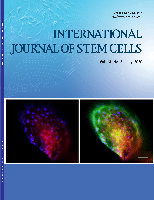
International Journal of Stem Cells
Elevating the Dialogue in Stem Cell ScienceThe International Journal of Stem Cells is a distinguished peer-reviewed journal dedicated to advancing the field of stem cell research. Published by the Korean Society for Stem Cell Research, this journal has established itself as a vital source of high-quality research since its inception in 2008. Operating under the ISSN 2005-3606 and E-ISSN 2005-5447, the journal caters to a global audience, featuring works that span a diverse array of topics within Cell Biology and Developmental Biology. It is noteworthy that as of 2023, the journal is ranked Q3 in Cell Biology and Q2 in Developmental Biology, highlighting its growing influence and credibility in the scientific community. Given its commitment to facilitating open scientific communication, it is crucial for researchers, professionals, and students to engage with the rigorous research published in this journal as it profoundly impacts the understanding and application of stem cell science. With accessibility to a wealth of innovative studies, the International Journal of Stem Cells remains an indispensable resource for anyone interested in the transformative potential of stem cell research.

CELL AND TISSUE RESEARCH
Connecting Researchers to Cutting-edge Findings in Cell BiologyCELL AND TISSUE RESEARCH, published by Springer, is a premier journal dedicated to advancing the field of cell biology, histology, pathology, and forensic medicine. With a proud history dating back to its foundation in 1924 and continuing its legacy, this journal has established itself as a vital source for innovative research, facilitating the dissemination of significant findings that contribute to the understanding of cellular and tissue dynamics. Hailing from Germany, the journal exhibits an impressive standing in the academic community with a 2023 impact factor reflected in its category quartiles: Q2 in Cell Biology, Q1 in Histology, and Q1 in Pathology and Forensic Medicine. It ranks notably within multiple Scopus categories, including 32/208 in Pathology and Forensic Medicine and 13/62 in Histology, showcasing its high percentile rankings of 84th and 79th, respectively. Researchers, professionals, and students benefit from its extensive coverage and rigorous peer-review process that ensures the integrity and relevance of its published works, thus making it an essential resource in the scientific community. While it operates under a subscription model, its commitment to quality and impact makes it an indispensable journal for anyone engaged in cellular and tissue research.
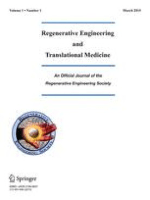
Regenerative Engineering and Translational Medicine
Unveiling New Horizons in Cell Biology and EngineeringRegenerative Engineering and Translational Medicine is an esteemed academic journal published by Springer Heidelberg, focusing on the interdisciplinary fields of biomaterials, biomedical engineering, and cell biology. With an ISSN of 2364-4133 and an E-ISSN of 2364-4141, the journal has carved a niche for itself since its inception in 2015, showcasing cutting-edge research that bridges the gap between scientific findings and practical applications in regenerative medicine. As a recognized platform in its field, it is currently positioned within Q3 quartiles in biomaterials, biomedical engineering, and medicine (miscellaneous), with a Scopus ranking that reflects its growing influence among peers. The journal aims to disseminate high-quality, peer-reviewed articles that highlight advancements in regenerative engineering, further advancing both theoretical and applied research. Scholars and practitioners seeking to stay at the forefront of the ever-evolving landscape of regenerative health solutions will find invaluable insights and innovations within these pages. Join a community of leading thinkers and explore the journal's comprehensive research contributions, which are crucial for fostering partnerships between academia and industry in the quest for transformative medical solutions.

Tissue Engineering and Regenerative Medicine
Shaping Tomorrow’s Medical Breakthroughs TodayTissue Engineering and Regenerative Medicine, published by the Korean Tissue Engineering Regenerative Medicine Society, is a distinguished journal focusing on the interdisciplinary fields of tissue engineering, regenerative medicine, and related biomedical innovations. With an ISSN of 1738-2696 and an E-ISSN of 2212-5469, this journal disseminates cutting-edge research and advancements pivotal to developing therapeutic strategies that improve tissue function and repair. As a testament to its scholarly impact, it holds a Q2 ranking in both Biomedical Engineering and Medicine (miscellaneous) categories, reflecting its influence and relevance within the scientific community, particularly with a Scopus rank placing it in the 82nd percentile among similar journals. Although the journal does not offer open access, it provides vital insights and knowledge to researchers, professionals, and students involved in the quest for innovative solutions in medical science and engineering. With its convergence years extending from 2008 to 2024, the journal continues to be an essential platform for the dissemination of high-quality research that drives the field forward.
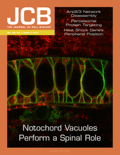
JOURNAL OF CELL BIOLOGY
Pioneering Research in the Heart of Cell BiologyJOURNAL OF CELL BIOLOGY, published by Rockefeller University Press, stands as a leading authority in the fields of Cell Biology and Medicine, reflected by its esteemed Q1 ranking in both categories as of 2023. Established in 1955, this journal has become a pivotal platform for disseminating groundbreaking research that enhances our understanding of cellular processes and their implications in various biological contexts. With a broad scope that encompasses experimental and theoretical studies alike, the JOURNAL OF CELL BIOLOGY embraces a rich diversity of topics, making it essential reading for researchers, students, and professionals committed to advancing cellular research. Although the journal does not currently offer open access options, its robust reputation, underscored by a competitive Scopus ranking of 43 out of 285 in the Cell Biology category, ensures that published findings reach a wide audience and influence the ongoing discourse in the life sciences. For those interested in staying at the forefront of cell biological research, the JOURNAL OF CELL BIOLOGY represents a critical resource.